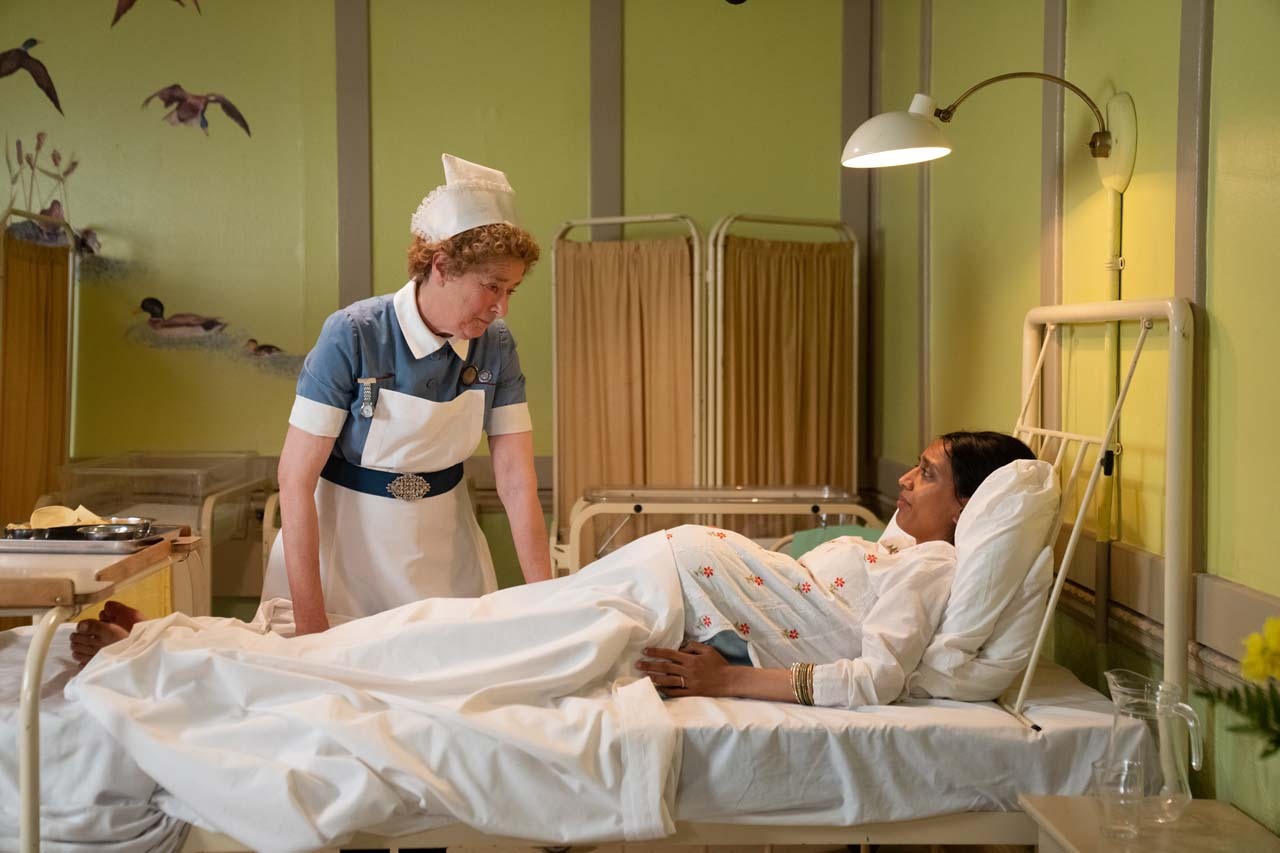Although MIA as blog contributor for Season 11, I am again feeling inspired and ready to share my thoughts during Season 12. I am still crafting my post retirement life as I enter my seventh year away from midwifery practice. Despite the separation, I continue to feel a call to purpose. I can’t help but believe that the history I witnessed, the experiences of caring for families and the wisdom I have gleaned from it, carry a responsibility. My mere survival is proof of a purpose yet to be fulfilled. Like Sister Monica Joan, my body may be old and tired, but my voice can still be heard.
This first episode of the new season overtly deals with issues of immigration and racism, as relevant in 2023 as they were in 1968. In 1968, I was just five years away from becoming a registered nurse in Michigan and witnessing the abuse women endured during hospital labor and birth. I knew nothing of midwives. There were no nurse-midwives practicing in Michigan until 1980. By 1973, I was a 22-year-old novice nurse witnessing women drugged and tied to beds with leather restraints. I saw procedures done without women’s knowledge and consent. I saw women traumatized, disrespected, and shamed. I was swept into the women’s rights movement of the time and with it the demand for changes in hospital childbirth practices. It wasn’t until decades later, as a nurse-midwife, that I felt atonement for my part in those early abuses.
The spark of activism I felt as a young nurse has been reignited by the current political debates about racism, immigration, and reproductive rights. I wonder at the echoes of history as a local hospital fires their entire staff of nurse-midwives giving one month notice. The fact that it was where I started my midwifery career nearly 30 years ago makes this assault on midwifery feel personal. My two midwifery partners and I worked hard to get in that door in the 1990s. With the closure of the practice, six nurse-midwives are left scrambling for employment and countless women are suddenly separated from their trusted care providers. The hospital assures clients that their obstetricians are skilled and no doubt they are. But it was midwifery care, not obstetrical care the clients had contracted for.
Several Michigan midwifery practices have recently had their practices contracted or shuttered by a massively bureaucratic health care system spanning multiple states. I’ve been thinking a lot about what this means. Sure, it’s always about money. America’s health care system is styled as a commodity to sell, not a public service industry.
But another factor may be at play. Seems to me that the closure of midwifery practice is related to the political trend of restricting reproductive rights. The focus of reproductive rights has deliberately been on the very divisive issue of abortion. Protecting the rights of the unborn is an easy issue to emotionally exploit, support and defend but difficult to compartmentalize without effecting other reproductive issues. Restricting a woman’s choice of where they birth, how they birth and with whom they choose as attendant is a critical piece of reproductive rights with serious and well documented safety implications for both mother and fetus. I will address the implications in future blog entries. The mind set of some power brokers is trending toward control of female bodies, and midwives have never fit that paradigm. Every nurse-midwife I’ve known has been an activist, annoying administrators with facts, promoting evidence-based care, and challenging unproven medical practices from the moment of arrival. Often medical system bureaucrats don’t want to hear it. But it is midwifery, not medicine on which I want to focus.
At the end of the episode the narrator comments, “We are all enmeshed in each other’s lives more than we imagine.” Although histories of British and American nurse-midwifery are deeply enmeshed, the history of American nurse-midwifery is distinct. As March is Women’s History month, it is fitting that my writing focus on history of midwives in the next few weeks. These current issues in American midwifery are deeply enmeshed in the history of its origins. Like many professions and institutions, we must grapple with the implicit biases instilled by previous generations whose vision was not those of modern sensibilities of sexism and racism. None of us today are responsible for the anachronisms which haunt us. We are only responsible for understanding the harm done and correcting the course. I seek to increase understanding of how history shapes our present and how knowledge can steer us to a better future for all. That could easily be the very goal and philosophy of Call the Midwife as well.
